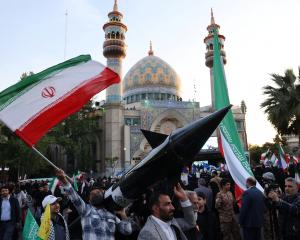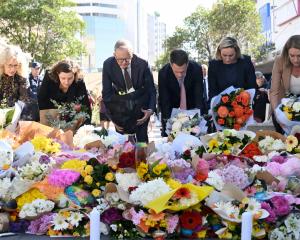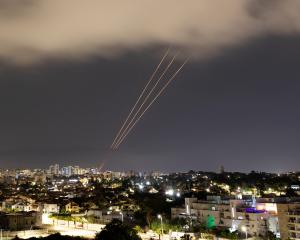Proving what happened beyond doubt and to the satisfaction of the warring parties may already be all but impossible, after local people and rebel fighters have spent 24 hours sifting and moving debris and bodies, and Ukraine and Russia make detailed allegations against each other and argue over the black boxes.
In principle, all sides support a call, backed by Russia and other world powers in the U.N. Security Council, for an impartial international investigation. But even agreeing the Kiev government has jurisdiction in a region where separatists have declared their own republic poses difficulties.
"It is a national competence, and that is part of the problem in this case," said Roland Bless, spokesman for the Swiss chair of Europe's OSCE security body, referring to rebel claims to sovereignty in the eastern region of Donetsk.
The OSCE said some of its staff had visited the impact site on Friday, a day after the aircraft was lost with 298 aboard, but they were met by rebels firing in the air.
"They did not have the kind of access that they expected," said Thomas Greminger, the OSCE's permanent council chairman. "They did not have the freedom of movement that they need to do their job. The crash site is not sealed off."
Separatists said they recovered both flight recorders from the Boeing 777 and are willing to cooperate, including by agreeing to a ceasefire. But officials in Kiev accused them of trying to spirit the black boxes, and a missile launcher they used to shoot the plane down, across the nearby Russian border.
Russia, which under normal circumstances would have no obvious stake in the air accident investigation of a U.S.-made Malaysia Airlines plane flying from Amsterdam to Kuala Lumpur, has said it does not intend to take the recorders.
In a typical crash inquiry, it is up to Ukraine, on whose territory the plane came down, to secure the area and recover the flight data and cockpit voice recordings and liaise with the manufacturer to ensure their contents are downloaded correctly.
Ukrainian President Petro Poroshenko has already spoken with other world leaders about the running of an international investigation, which could allay some of the rivalries.
Ukraine issued invitations to assist with an investigation to U.N., U.S. and European air safety organizations, the aircraft manufacturer Boeing, Malaysia and the Netherlands, the U.S. State Department said.
The International Civil Aviation Organization, the Montreal-based U.N. air safety arm, offered to assemble a team of international investigators. Boeing said it would provide whatever assistance is requested by authorities.
The United States said it would send one investigator each from the National Transportation Safety Board, its air safety organization, and the Federal Bureau of Investigation, its criminal investigation agency.
The NTSB investigator was expected to leave for Kiev on Friday and more could be sent if needed, an official said. The NTSB typically sends one to three investigators, though they have sent as many as eight to 10 in cases where the host country asked the agency to lead the investigation.
ACCESS TO CRASH SITE
A U.S. official said American investigators currently had no expectation of being able to visit the crash site because of the security situation in the region where the plane went down.
U.S. Transportation Secretary Anthony Foxx told MSNBC television that delay in investigators gaining access to the crash site was a "matter of concern."
A U.S. official with knowledge of the situation said the FBI would lead the U.S. portion of the investigation because the crash appeared to be a criminal matter and the regular protocols on accident investigations don't apply.
The official said unless the black boxes were badly damaged, many countries would have the technical capability to access the recording devices and retrieve the data. With separatist rebels in control of the boxes, that has raised concern the data could be tampered with.
"It's very important that unbiased international experts will be the first persons who get access to the black boxes," said Ukraine's U.N. ambassador in Geneva, Yurii Klymenko.
"The issue is who will ... open the boxes? We would like to have the true information, not the fake one."
If another body obtains the recorders it must hand them over, otherwise it will run the risk of corrupting the data or being suspected of trying to destroy it, said London lawyer Jim Morris from Irwin Mitchell, a former British military pilot.
After a Soviet fighter shot down Korean Air Lines flight KAL 007 in 1983 when it strayed into Soviet air space, Moscow found the black box but only handed it to international investigators after the end of the Cold War nearly a decade later.
Ron Hosko, a retired FBI agent who has worked on a number of international investigations, said early-hour diplomacy between the United States, Ukraine and Russian separatists is critical to assure a safe, unadulterated investigation.
"The next couple of days are absolutely critical," Hosko said. "We need some kind of agreement to be forged to clear out a protective zone around that debris. If we're stalled, that presents an opportunity for those who are guilty to scrub the scene so that we can't prove the case."
Brian Alexander, an aviation attorney at New York law firm Kreindler and Kreindler, said that despite the "dicey" situation in the area, "with the international pressure, the community should be able to get a team to the site and allow an investigation to proceed as normally."
"But trying to figure out who provided the training, the weapons, that's a much thornier issue," he said, adding that investigators would be looking for debris not part of the plane.
The flight data may offer little information on what caused the 777 to come down. An explosion by a heavy missile that blew the aircraft apart could show only as a sudden, catastrophic collapse of all the onboard systems.
If, as Ukraine alleges, MH17 was hit by an SA-11 missile, there is a good chance the pilots did not see it coming, leaving little or no informative trace on the cockpit voice recording.
The wreckage might show traces of explosives that could indicate the blast of a warhead. Somewhere in the debris strewn for miles across the steppe might be remnants of a missile. But finding them will be hard and proving their provenance after the confusion and mutual accusations of the first day will be tough.
A former British airman said: "Any recovered missile fragments could be analysed. But unless there is a stark difference in the exact type of arms both sides hold, differentiating is not easy."
In fact all sides use similar former Soviet hardware.












